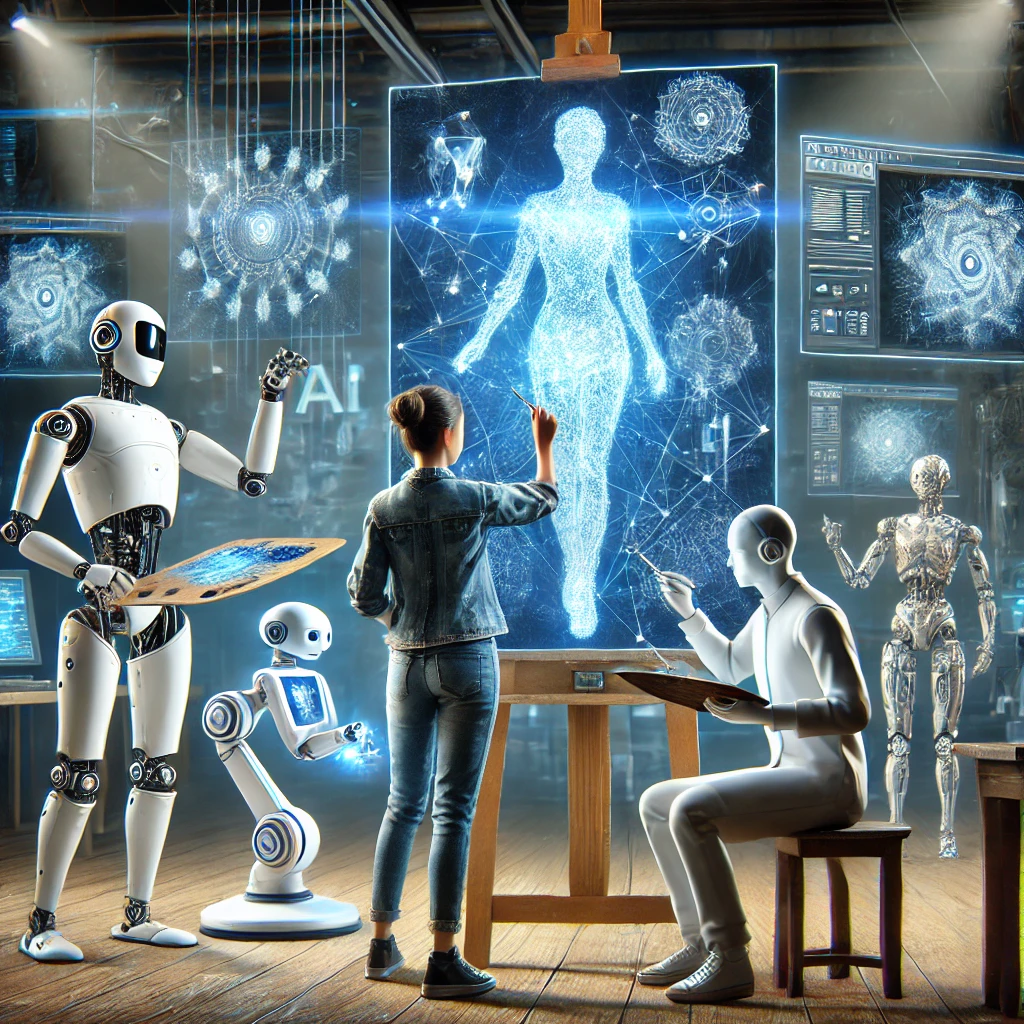The rise of artificial intelligence (AI) has sparked heated debates about automation’s threat to jobs, particularly in fields like manufacturing and logistics. However, industries centered on creativity—graphic design, writing, and other artistic endeavors—face a more nuanced transformation. While fears of mass unemployment are overstated, AI is poised to redefine roles, workflows, and the very definition of "creativity" itself. Here’s how.

Opportunities: Augmentation Over Replacement
1. Automating the Mundane
AI tools like Canva’s Magic Design, Adobe Firefly, or GPT-4 are already streamlining repetitive tasks. Designers no longer spend hours resizing images for different platforms, while writers use AI to generate drafts or brainstorm ideas. This frees creatives to focus on higher-value work: refining concepts, storytelling, or building client relationships.
2. Democratizing Creativity
AI lowers barriers to entry, enabling small businesses or individuals to produce professional-grade content without hiring large teams. However, this also raises demand for *human* experts who can elevate AI-generated outputs. A graphic designer’s role may shift from creating logos from scratch to curating and refining AI-generated options to align with a brand’s ethos.
3.
Roles like "AI Creative Director" or "Prompt Engineer" are emerging. Professionals who understand both AI capabilities and human creativity will thrive. For instance, writers may specialize in training AI models to adopt a brand’s voice, while designers could focus on ethical AI integration to avoid bias in visual outputs.
Challenges: Adapting to a Shifting Landscape
1. The Threat to Entry-Level Roles
Junior positions in writing (e.g., drafting product descriptions) or design (e.g., basic social media templates) are most vulnerable. AI can produce competent first drafts, reducing demand for low-complexity work. This pressures newcomers to upskill faster, focusing on strategic thinking and emotional intelligence—skills AI lacks.
2. The Homogenization Risk
Overreliance on AI tools trained on existing data could lead to formulaic outputs. Clients may gravitate toward “safe,” algorithm-friendly designs or narratives, stifling innovation. Human creatives will need to advocate for originality, using AI as a springboard rather than a crutch.
3. Ethical and Copyright Gray Areas
Who owns AI-generated content? If a writer uses ChatGPT to draft a novel, is the output theirs or OpenAI’s? Graphic designers face similar dilemmas with AI art generators trained on copyrighted works. Legal frameworks lag behind technology, creating uncertainty for professionals.
The Future: Collaboration, Not Competition
The most successful creatives will treat AI as a collaborator, not a rival. For example:
-Writers
might use AI to analyze audience engagement data, then craft stories that resonate emotionally.
Designers
could leverage AI to prototype 3D models rapidly, then add hand-drawn textures for authenticity.
Human creativity thrives on imperfection, cultural context, and emotional resonance—qualities algorithms struggle to replicate. While AI will disrupt workflows, it cannot replace the intuition behind a compelling ad campaign or the vulnerability in a bestselling memoir.
Conclusion:
Creativity Evolves, It Doesn’t Disappear
The narrative of AI as a job destroyer oversimplifies its impact. In creative industries, AI will eliminate certain tasks but amplify opportunities for those willing to adapt. The key lies in embracing hybrid workflows: letting machines handle efficiency while humans focus on meaning. The future belongs not to AI or humans alone, but to the synergy between them.
Comments
Post a Comment